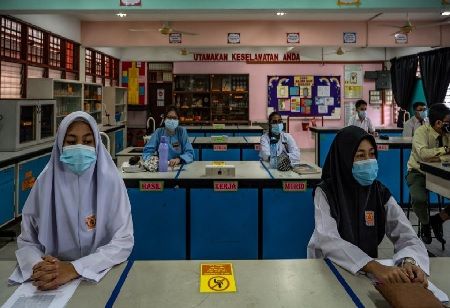- Malaysia’s education leaders urge government to reconsider 6% SST on scholarships and waived fees.
- Taxing gross tuition, not net payments, may discourage expatriate families and international educators.
- Policy could reduce scholarships, disrupt students, and impact Malaysia’s goal as a regional education hub.
Education leaders in Malaysia are urging the government to reconsider its decision to impose a 6% Sales and Service Tax (SST) on waived fees and scholarships at private and international schools, cautioning that the move is unfair and could undermine the country’s position as a regional education hub.
Dr Teh Choon Jin, deputy president of the National Association of Private Educational Institutions, described the tax as 'illogical and unfair', noting that it targets amounts students do not actually pay.
“For scholarship recipients, this undermines the very purpose of financial aid. They are still taxed on the full tuition fee despite receiving assistance. A fairer approach would be to tax only the net amount paid, reflecting the true transaction value”, Dr Teh Choon Jin explained.
Also Read- Japan to Train 30,000 AI Experts in Africa with $7Billion Support
Parents of children in international schools have expressed concern, particularly regarding the inclusion of scholarships, bursaries, and staff waivers under SST. Teachers with multiple children in such schools now face several tax charges, prompting some expatriate educators to reconsider staying in Malaysia.
During an engagement session on August 6, Customs Department officials confirmed that scholarships are treated as 'selective discounts' and taxed on the gross tuition fee. This means a student receiving a 50% scholarship on a RM62,000 annual fee would still incur RM3,720 in SST. Both scholarships and staff tuition waivers are subject to SST based on the full tuition, not the discounted or waived amount.
Teh warned that this policy could restrict access to education and jeopardize Malaysia’s goal of becoming a leading regional education hub. “A net-fee-based tax system would ensure fairness by taxing only actual payments, reduce financial strain, preserve revenue integrity without penalizing aid recipients, and encourage schools to continue offering scholarships generously. The additional SST cost may also deter top international educators and expatriate families from choosing Malaysia,” he added.
An international school chairman in Kuala Lumpur, who requested anonymity, echoed these concerns, describing the expanded SST as an unnecessary financial burden for teachers and their families. “Scholarships are not luxuries; they support teachers for their service. Families may be forced to move their children to non-SST schools, causing disruption. This also affects our ability to attract and retain talented educators,” he said.
He further noted that schools face higher costs when supporting deserving students, which could lead to fewer scholarships being offered in the future.
Under the new policy effective July 1, private and international K-12 schools must register for SST if their average annual fee per student exceeds RM60,000. The tax applies to both Malaysian and non-Malaysian students, except Malaysian students with disabilities. In higher education, SST applies to all foreign students regardless of tuition level.

